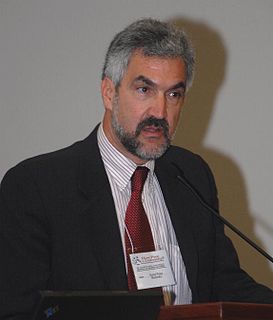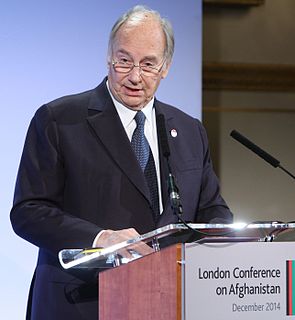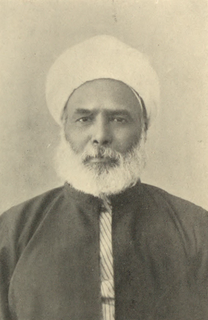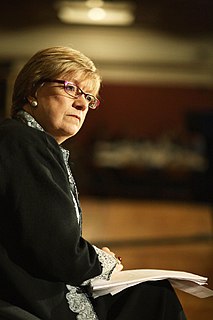A Quote by Ayaan Hirsi Ali
Many people in Europe and the U.S. dispute the thesis that we are living through a clash of civilisations between Islam and the west. But a radical minority of Muslims firmly believes that Islam is under siege, and is committed to winning the holy war it has declared against the West.
Related Quotes
Anti-Islamist Muslims - who wish to live modern lives, unencumbered by burqas, fatwas and violent visions of jihad - are on the defensive and atomized. However eloquent, their individual voices cannot compete with the roar of militant Islam's determination, money (much of it from overseas) and violence. As a result, militant Islam, with its West-phobia and goal of world hegemony, dominates Islam in the West and appears to many to be the only kind of Islam.
When I was in the US, I felt that the discourse there surrounding Muslims as the other, problematising Muslims and Islam as the other was very similar to what we find in Australia, which is that the image of Islam is a constructed image in the West. We are starting from a point of view that Islam and Muslims - well Islam is a violent, misogynistic, hateful religion and that is where the debate always starts from - that presumption underlies the discourse.
The Muslim world, with its history and cultures, and indeed its different interpretations of Islam, is still little known in the West. The two worlds, Muslim and non-Muslim, Eastern and Western, must, as a matter of urgency, make a real effort to get to know one another, for I fear that what we have is not a clash of civilisations, but a clash of ignorance on both sides.
The religiously observant is lumped in with the nominal Muslim, the nominal Muslim is lumped in with the non-Muslim and the radical. If we want to make sense of this mess and stop pushing Muslims into the arms of the extremist, we need to make meaningful distinctions between the religion of Islam that a billion Muslims follow and see as a guidance as a peaceful righteous moral life and the puritanical Islam of a minority which so captures the media's attention.
Rather than being a 'perversion' of Islam, it is truer to say that the version of Islam espoused by ISIS, while undoubtedly the worst possible interpretation of Islam, and for Muslims and non-Muslims everywhere obviously the most destructive version of Islam, is nevertheless a plausible interpretation of Islam.
I do not think there is such a thing as a "clash of civilizations." When I say that Muslims as Muslims cannot be represented in the West, I was being ironic, and also referring to the fact that ninety percent of the time when people talk about "the problem of Muslims" in the West, it is to complain about the fact that Muslims have not "integrated."
The sense of Islam as a threatening Other - with Muslims depicted as fanatical, violent, lustful, irrational - develops during the colonial period in what I called Orientalism. The study of the Other has a lot to do with the control and dominance of Europe and the West generally in the Islamic world. And it has persisted because it's based very, very deeply in religious roots, where Islam is seen as a kind of competitor of Christianity.

































